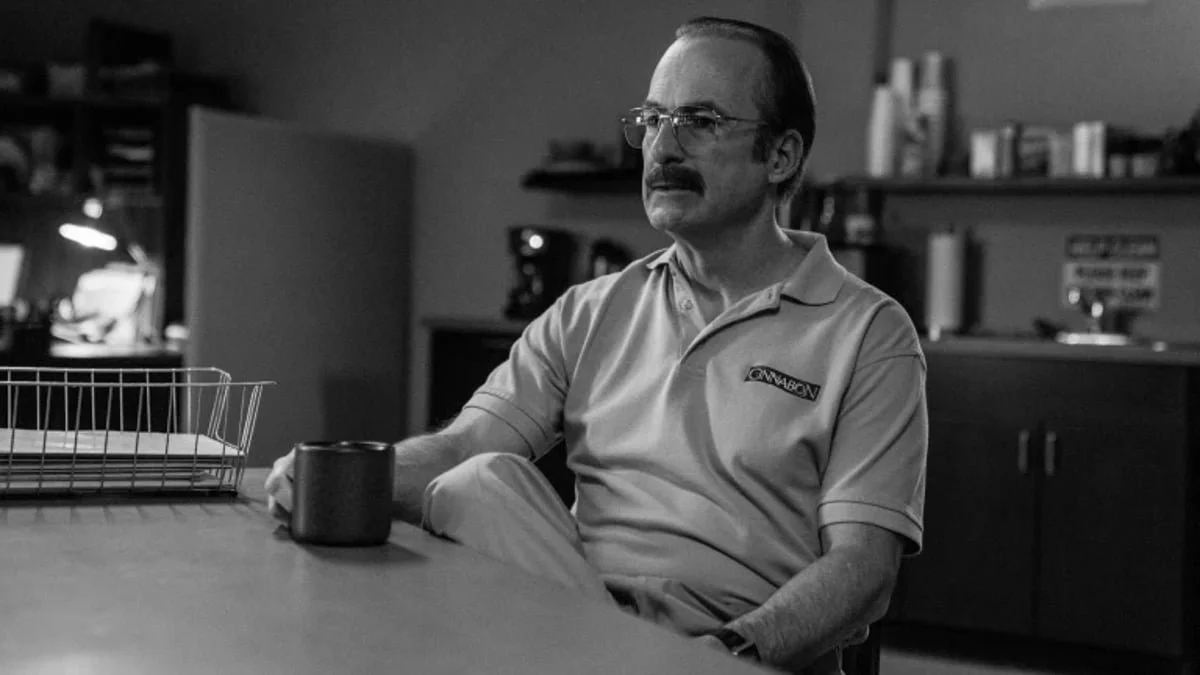Better Call Saul: Regret and Redemption
Regarded as one of the greatest prequel series of all time, AMC’s Better Call Saul makes one final appearance in the limelight as its final six episodes vie for the show’s last shot at an Emmy. With sharp changes in pace and decisions with disastrous consequences, the final episodes of Better Call Saul force its characters—and the viewer—to reconcile with the many sins that morphed Jimmy McGill from a struggling attorney into a fugitive. As Saul makes one last grab at an Emmy, two years after its last episode, we take a look back at the show’s conclusion and what it teaches us about coming to terms with one’s actions.
Much of Saul’s conclusion is spent unwrapping the dramatic breakup between Jimmy and his wife, Kim Wexler, after their attempt to scam fellow attorney Howard Hamlin unintentionally results in his death in an accidental cross with the cartel. Set in a post-Breaking Bad world and coated with a black-and-white finish, the show’s final episodes show Jimmy McGill, under the alias of “Gene Takovic,” falling back into his old habits of criminality. We are reminded of the show’s beginning, when Jimmy’s unsupportive older brother, Chuck, tried to keep him from becoming a lawyer, deeming him a “conman” and angrily asserting that “people don’t change.” Time after time, from the moment Chuck calls his brother a failure to the final screw-up that lands Jimmy—Gene—in police custody, Chuck’s words are proven right.
A lesser show might have killed off Jimmy or spontaneously turned him towards morality. Instead, Saul forces our protagonist to face his past without betraying the good-mannered sleaziness of Jimmy's character. Specifically, it is the reconciliation with Kim Wexler, who admits to her role in Howard’s death solely out of a desire to right past wrongs, that pushes Jimmy towards a similar redemption. Without a complicit partner in crime (even if it’s just the crime of silence), Jimmy is presented with his past sins, his role both in Howard’s death and in building a drug empire, without anyone else to share the blame. As he confesses in court and purposefully turns a seven-year sentence into a lifetime in prison, Jimmy throws down the alias of “Saul Goodman.” The exit sign, a reminder of Chuck’s perceived sensitivity to electricity, hums in the courtroom as we learn that Jimmy’s biggest regret was his failure to mend his broken relationship with his brother.
Jimmy’s ending in prison may be a solemn one, but it’s also proof that, even after years of malice, he was capable of change.
After a lifetime of cutting corners, Jimmy represents the kind of goodness we don’t see on TV very often: the flawed, hidden, yet utterly persistent morality that can only be accessed with an honest and unwavering look at one’s past mistakes.
Between Kim’s post-confessional sobs and the black-and-white bleakness of Jimmy’s prison, Saul looked the world in the eye and shouted, “redemption can never be easy!” Still, our last moments with the show are uplifting: Jimmy faces an honest salvation from behind the prison gates, staring at the world contentedly, no longer carrying the burden that came when he ran from his past; our protagonist is finally free.



